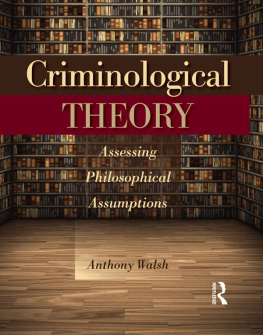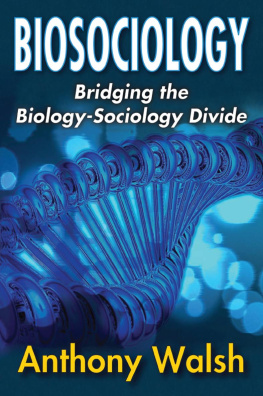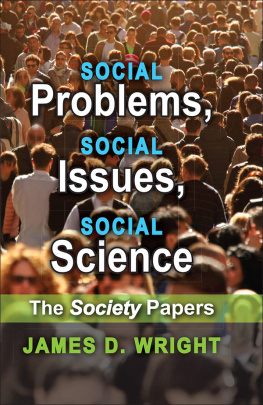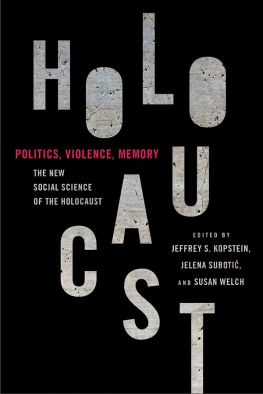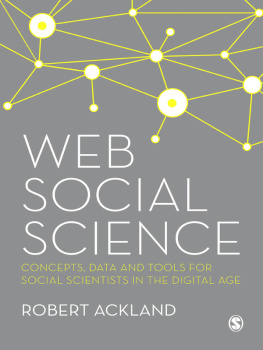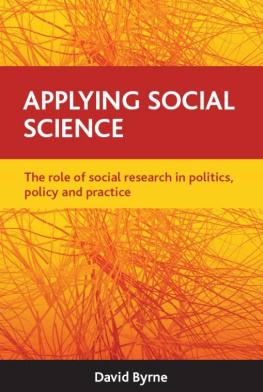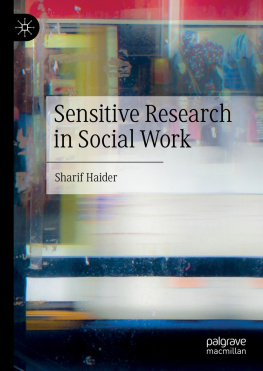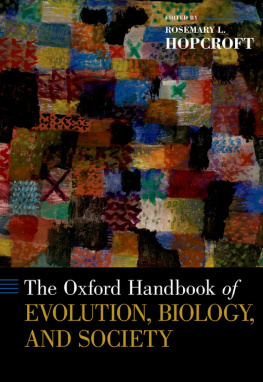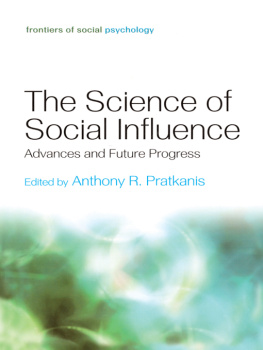Taboo Issues in Social Science: Questioning Conventional Wisdom
Chapter 1: Postmodernism, Political Correctness and the Tyranny of the Academy
Chapter 2: Feminism: The Good, the Bad, and the Ugly
Chapter 3: Whiteness Studies and Racist Amerika
Chapter 4: Ideological Battles over Human Nature
Chapter 5: Social Constructionism and Gender
Chapter 6: Race: A Dangerous Concept or a Useful One?
Chapter 7: Politics and Personality: Callous Conservatives and Loving Liberals?
Chapter 8: Capitalism and Socialism: The Devils Dung versus Satans Spore
Chapter 9: Socioeconomic Success: Talent Plus Effort or White Privilege?
Chapter 10: Cultural Relativism, Multiculturalism, Violence, and Human Rights
Chapter 11: Lies, Damn Lies, and Statistics about Crime and Justice
Chapter 12: Culture, Constitution, and Government
Preface
This book is a politically incorrect expedition into the fantasies, falsehoods, and folderol infecting social science and humanities departments in our universities. A disturbing feature in academia that provided the primary impetus for writing this book is the efforts to censor research on "taboo" topics. An article in the prestigious journal Nature featured four such areasrace, sex differences, intelligence, and violence that are taboo if they do not subscribe to the liberal orthodoxy and if they tie those things to biology. According to the article, these topics are said to be red lined by editors, university review boards, and granting authorities if researchers dare probe their biological roots. Although many researchers successfully cross the line, they are said to risk career and reputation for doing so. We are not talking Josef Mengele and his monstrous medical experimentation on concentration camp inmates, the unconscionable Tuskegee Syphilis experiment, or even Stanley Milgram's experiment on obedience, but rather research in which subjects freely participate and are left entirely unscathed by the experience.
The argument against touching these hot topics biologically most often cited is that findings can be "misused." Of course, anything can be misused--guns, knives, cars, alcohol, chemistry, physics, sexuality, the law, religion, and the Oracles of Delphi, but, with the exception of guns, no one calls for a ban on these things. Its only a matter of seconds after a person brings up biology when discussing taboo topics that some would-be censor brings up Hitler. Hitler can be loosely tied to all these tabooed phenomena because he used the terms race, defectives, and perverts to consign millions of Jews, mentally ill or retarded individuals, and homosexuals to the gas chamber as biologically inferior types. Biology is thus in the minds of some guilty by association with Hitlers agenda.
It is too often forgotten that similar nightmares have bedeviled humanity throughout history, none of which waited for biology to sanctify them. Nazi notions of racial superiority rested on quasi-mystical Teutonic nationalism and had nothing at all to do with the science of biology in any real sense. Human history is a sad catalogue of inquisitions, gulags, pogroms, genocides, and wars fought in the name of religious and secular ideologies far removed from any whiff of biology. The communist terror was quantitatively more heinous than the Nazi terror, lasted much longer, and is based on a theory of human nature which was purely environmental and which explicitly repudiates biology. The Marxist terror rested on myths of egalitarianism and was energized by class resentment, not by myths of racial superiority.
Biologist Bernard Davis has fought to counter censorial propositions being bandied about as socially dangerous since the 1970s. He notes that the notion of forbidden knowledge has a long history, but that: It is a difficult notion for scientists to accept, since all knowledge can be used in various ways, and it would seem better to restrain the bad uses rather than to deprive ourselves of the good ones. Surely this is a position that all true scientists would hold. A number of folks even become attracted to taboo ideas simply because they are taboo. My first published research was on hypertension, and my first book was on love, both of which are safe and non-ideological topics. I was drawn to taboo topics initially by witnessing the brouhaha surrounding sociobiology and the topic of intelligence in the 1970s and found them fascinating.
To be sure, there is a lot of good social science serving useful purposes, but there is also an awful lot of research with transparent agendas better described as advocacy research in which conclusions precede inquiries. Researchers with an apparent pathological aversion to clarity dress up their work in pretentious language in their efforts to appear profound. These folks belong to exclusive clubs whose members are overwhelmingly liberal and who feed incestuously on each others work to the point that very little not supporting the liberal agenda is carried out. This situation was addressed in the prestigious journal Behavioral and Brain Sciences in 2015 and summarized by Lee Jussim, one of its authors, in an article titled Political diversity will improve psychological science :
You advocate for diversity and yet you are a political monoculture. Vanishingly few
of your members identify with any ideological perspective to the right of American
liberal or European social democrats (conservative, libertarian, moderate). You have
created a hostile environment for nonliberals. Many of you endorse and justify
discriminating against conservatives. The few nonliberals in your midst feel
beleaguered by your hostility. Too much of your science is riddled with confirmation
biases and distortions that create the appearance, but not the reality, of scientific support for the moral and intellectual superiority of liberals, and for liberal values and narratives. It is time that you took proactive steps to make your field less hostile and more inviting to nonliberals, and to upgrade the quality of your science in order to limit the role of political biases in distorting your conclusions.
This brings me to my secondary motive for writing this book. The political asymmetry of the liberal monoculture corrupts social science, and is the reason that the kinds of politically correct nonsense spewed from the ivory towers can thrive. Journalists jump on this stuff reflexively as gospel because it comes from people with PhDs and is so exciting. What makes it exciting, and thus a good story, is that much of it defies common sense and may contain sensationalized accounts of the damage the evil American white male power structure supposedly inflicts on racial and sexual minorities, and on women. All kinds of isms are dreamed up such as postmodernism, relativism, and multiculturalism, among other things, to justify the lefts position on so many issues that they have difficulty defending scientifically. The writings of academics enthralled by such approaches moved William F. Buckley, the preeminent public intellectual of the 20th century, to say in one of his Firing Line programs: The academic community has in it the biggest concentration of alarmists, cranks and extremists this side of the giggle house. Having spent 31 years in the ivory tower, I find much in this to agree with. Although I have many wonderful colleagues who are serious scientists and who are far from alarmists, cranks or extremists, too many social scientists provide fodder for mockery and outrage that it is easy to mistake them for refugees from the funny farm.
I didn't always feel this way. In another episode of Firing Line , Buckley stated that he would rather be ruled by the first 500 people in the Boston phone book than by the faculty of Harvard. I loved Buckleys debates and admired his immense intellect and sparking vocabulary, but was struck dumb by this statement. As an undergraduate biology major at this time, I had taken intro to just about everything and came away thinking my professors were brilliant. If my professors were brilliant, then Harvard professors just had to be more so. It didnt take me long after getting into academia to realize just how right Mr. Buckley was, however. I have heard more pure nonsense on social issues from PhDs than from all other people combined in my 28 years work experience prior to entering academia. As an ex-marine, police officer, and probation officer, I have engaged the real world that most academics have never entered to test their ideology against reality. So many of them want to protect students from ideas other than those from the left, and provide safe spaces against micro-aggressions, which may be as innocuous as calling someone by the wrong gender pronoun, or having the temerity to wish them a Merry Christmas..
Next page

